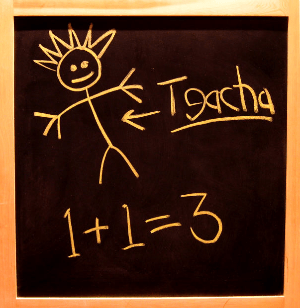What can we learn about expert performance from the raid on Bin Laden’s compound?
e key to expert performance in any scenario is having done it before -- or the closest thing to that. Via Daniel Coyle's excellent book The Little Book of Talent: 52 Tips for Improving Your Skills: When U.S. Navy SEAL Team 6 mounted its May 2011 raid on Osama bin Laden’s compound in Pakistan, it prepared by constructing full-scale replicas of the compound in North Carolina and Nevada, and rehearsing for three weeks. Dozens of times the SEALs simulated the operation. Dozens…
1 min read
5 tips for picking an awesome mentor
ghlights from Daniel Coyle's excellent book The Little Book of Talent: 52 Tips for Improving Your Skills: 1) Avoid Someone Who Reminds You of a Courteous Waiter ...one who focuses his efforts on keeping you comfortable and happy, on making things go smoothly, with a minimum of effort... This is a good person to have as your waiter in a restaurant, but a terrible person to have as your teacher, coach, or mentor. 2) Seek Someone Who Scares You a…
2 minutes
Are future creative geniuses unpopular in high school?
s. The deliberate practice that will one day make them famous alienates them from their peers in adolescence. Via Quiet: The Power of Introverts in a World That Can't Stop Talking: ...the single-minded focus on what would turn out to be a lifelong passion, is typical for highly creative people. According to the psychologist Mihaly Csikszentmihalyi, who between 1990 and 1995 studied the lives of ninety-one exceptionally creative people in the arts, sciences, business, and government, many of his subjects were on the social…
1 min read
How does Chris Rock create such brilliant comedy?
's relentlessly tested and tweaked onstage over a period of months. Via Little Bets: How Breakthrough Ideas Emerge from Small Discoveries: When beginning to work on a new show, Rock picks venues where he can experiment with new material in very rough fashion. In gearing up for his latest global tour, he made between forty and fifty appearances at a small comedy club, called Stress Factory, in New Brunswick, New Jersey, not far from where he lives. In front of…
2 minutes
Is it better to do all your reading for the year in two weeks?
y compressing their intake into a matter of days, they give new ideas additional opportunities to network among themselves, for the simple reason that it’s easier to remember something that you read yesterday than it is to remember something you read six months ago." Via Where Good Ideas Come From: The Natural History of Innovation: The problem with assimilating new ideas at the fringes of your daily routine is that the potential combinations are limited by the reach of your…
2 minutes
Does quantity lead to quality?
can. Making mistakes can be vital to improvement. Via Where Good Ideas Come From: The Natural History of Innovation: “The errors of the great mind exceed in number those of the less vigorous one.” This is not merely statistics. It is not that the pioneering thinkers are simply more productive than less “vigorous” ones, generating more ideas overall, both good and bad. Some historical studies of patent records have in fact shown that overall productivity correlates with radical breakthroughs…
1 min read
This Common Activity Is Reducing Your IQ, According To Research
ssing an hour of sleep turns a sixth grader's brain into that of a fourth grader. Via NurtureShock: The performance gap caused by an hour’s difference in sleep was bigger than the gap between a normal fourth-grader and a normal sixth-grader. Which is another way of saying that a slightly-sleepy sixth-grader will perform in class like a mere fourth-grader. “A loss of one hour of sleep is equivalent to [the loss of] two years of cognitive maturation and development,” Sadeh…
2 minutes
How To Coach The Best Performance Out Of People, According To Research
xplanation, demonstration, imitation, correction, and repetition." Break down proper technique, quickly correct errors and get them to repeat until it's second nature. Via The Talent Code: Greatness Isn't Born. It's Grown. Here's How: Gallimore and Tharp recorded and coded 2,326 discrete acts of teaching. Of them, a mere 6.9 percent were compliments. Only 6.6 percent were expressions of displeasure. But 75 percent were pure information: what to do, how to do it, when to intensify an activity. One of Wooden's…
2 minutes








